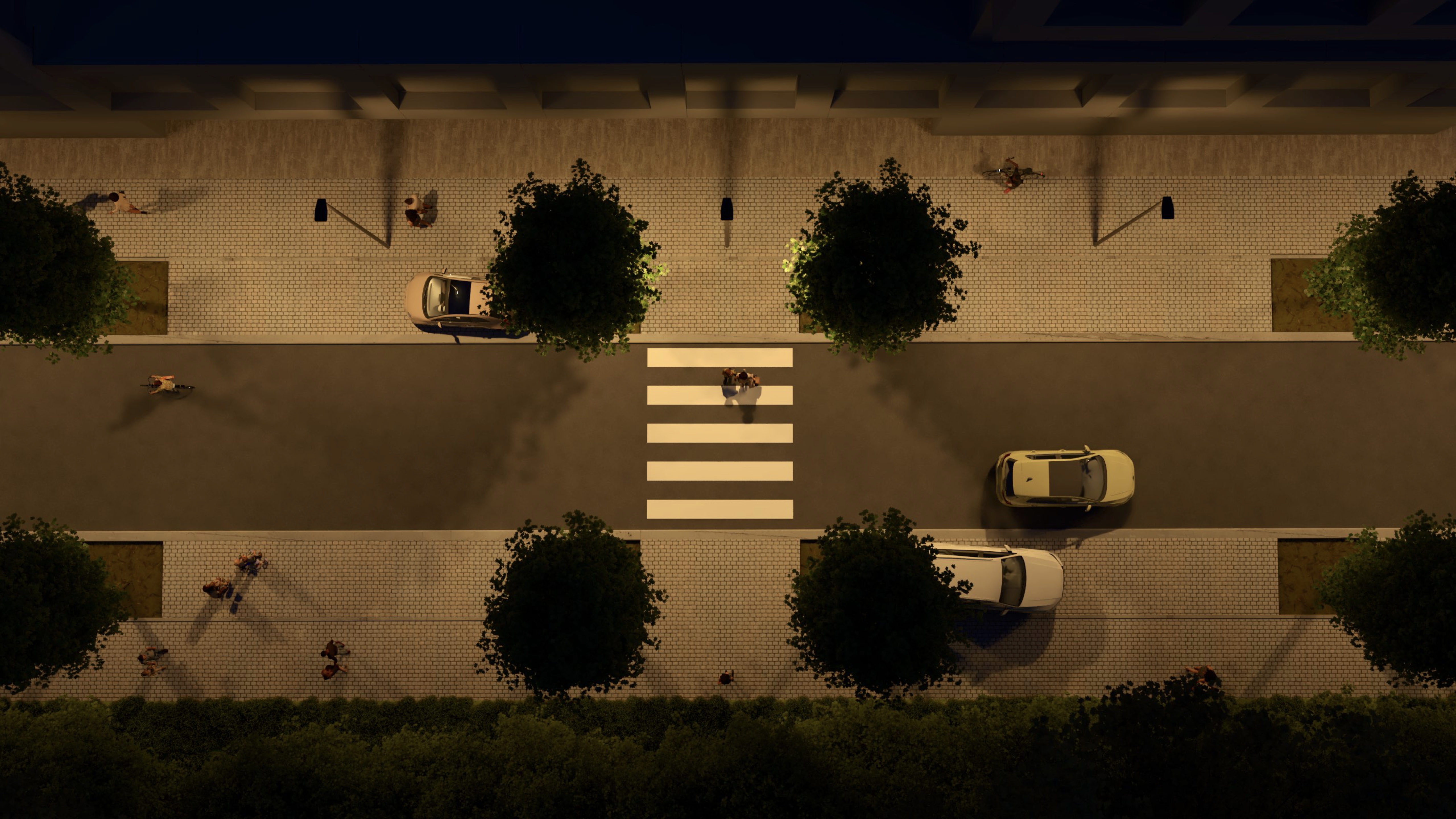Prize(s) Honorable Mentions
Lighting Design/Product Company Tobias Link GmbH
Lead Designers Tobias Link
Other Designer's names Oliver Link
Client Schanzenberg GmbH & Co. KG Ulrichshögler Str. 23 83404 Ainring
Photo Credits Marc Andre Stiebel
Completion Date Jun 2025
Project Location Germany - Saarland - Saarbrücken
Entry DescriptionAt Saarbrücken’s new “Am Schanzenberg” district, an innovative lighting concept redefines urban street illumination. The project transforms 125,000 sqm of former fairgrounds into a sustainable Creative Hub with a smart, adaptive system. Each luminaire is part of a wireless mesh network, GPS-tracked and equipped with sensors to activate light only when movement is detected. This ensures safety while reducing energy consumption by up to 90%. Circadian light profiles adapt color temperature to ecological needs: warmer light in spring and summer to protect insects, cooler light in winter when nocturnal species are less active. The system preserves the night sky by avoiding upward light emission, providing a “Dark Sky” environment. Programmable scenarios, real-time monitoring, and data analysis allow long-term optimization and scalability. Developed in close collaboration with the city and environmental experts, the project demonstrates how cutting-edge lighting technology can support both urban transformation and ecological responsibility. It serves as a model for Smart City developments, balancing human comfort, biodiversity, and sustainable growth.
Sustainability ApproachThe project sets new standards in sustainable street lighting by combining energy efficiency, biodiversity protection, and carbon reduction. Adaptive controls ensure light is only used when needed, lowering energy use by up to 90% and significantly reducing CO? emissions. Seasonal circadian profiles adapt light color to minimize disturbance of nocturnal species, developed in cooperation with NABU. The system supports Dark Sky principles by preventing light pollution, safeguarding natural night rhythms. Wireless mesh networking enables precise monitoring, remote control, and optimized operation, ensuring long-term efficiency. Early results show measurable ecological impact and strong acceptance among stakeholders, proving that sustainable lighting can drive both environmental protection and urban innovation.


